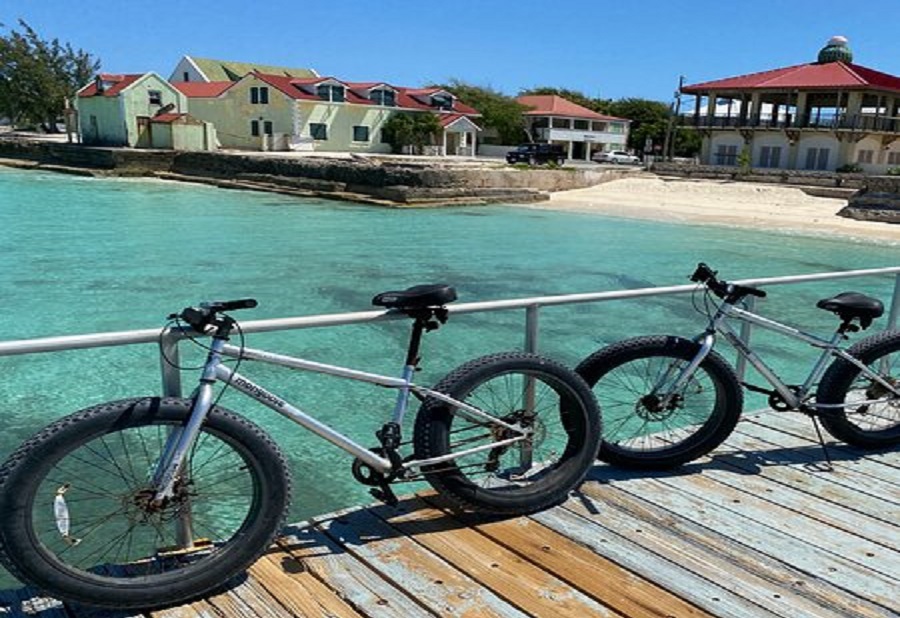#TurksandCaicos, January 23, 2023 – The lack of a public dock and a proper working ramp in the vicinity of the carnival cruise ship port, has been a source of contention for boat tours operators and local fishermen for years.
What residents thought was a breakthrough with the government announcement of a proposed $1m floating dock, appears to have loss its steam.
As our tourism industry grows, there is a greater need for more safeguards and resources to be put in place to help support tour operators and protect the tourism products that we so desperately depend on. 
It’s imperative that the government address these issues in a wholesome way to include input from relevant stakeholders.
Many citizens are of the view that in order to build stronger public/private partnerships, whenever extraordinary decisions are made that can affect an entire industry, the point of view from various stakeholders of that industry should always be considered.
Unfortunately, there is more and more evidence that the local water-sports and land tour operators are being put in a less competitive position and disadvantaged in an industry that was created to support the residents of Grand Turk and Salt Cay and not just Carnival cruise lines.
That is the premise of this article and the story must be told.
The most pressing issue impacting the Watersports operators is not the fact that we do not have a floating dock, but the lack of a proper working ramp to launch and pull up our vessels. There are other pending issues, but if the boat operators can get movement on this particular item it will serve the residents well.
I believe its an important piece of infrastructure that is desperately needed on the island. It will put boat operators in a better position to support the tourism product, proper boat maintenance, in addition to cutting the absorbent cost associated with launching and removal of vessels.
During the latter part of 2021, the government proposed $1m to build a floating dock within the vicinity of Carnival cruise port. To my knowledge, as of this date, no further information or discussion was released to the public.
Below is a list of reasons for our concerns as it relates to this matter.
- The current condition and accessibility of the existing ramp located at south base is not fit for use.
- It will allow boat tour operators, local fishermen and casual boat users easier access to properly maintaining their vessels.
- It will ease the financial burden for so many of us as the associated cost to launch and remove vessels is well over $200.
- It will minimize damages caused to vessels during transit due to the build-up of uncontrollable sand dunes and a lack of the proper equipment being used.
- The police dock located at north creek is not practical or conducive to small business operators depending on the cruising industry to make an honest living. In addition, during inclement weather, entering and exiting north creek could be treacherous and at times boat operators cannot exit the channel. This could impact the tourism experience if vessels are unavailable for pre-booked tours in addition to causing loss revenue.
Recommendations and Solutions:
- At this given time a proper ramp is more practical than a floating dock.

- Recommended location for a permanent not a the floating dock should be at Governor’s beach. Partial infrastructure is already there as it was previously used by the US Navy. In addition, the access lane is already in place.
- Another alternative would be to extend and enhance the Salt Cay dock for public use.
- Equip dock with lights and running water for proper use and maintenance of vessels or search and rescue operations.
- Repair and enhance the existing public ramp located at south base.
- Repair the roads leading to and from all docks and ramps.
Development within a Park, by ordinance, is acceptable if it benefits the general public. I think a proper public ramp or dock on the western shores would fit that bill and the boaters have certainly made a compelling argument.
I often marvel that it took successive Governments no time to come up with finding funds to remove the old steamer on Governor’s beach, but it’s taking years to provide a needed resource to support the tourism industry which Grand Turk boat operators and local fishermen primarily depends on.
It will take high level and bureaucratic commitment to move this forward.
Nevertheless, boat operators are optimistic that change will come someday. We look forward to a favorable outcome where we can all work together in unison for the betterment of this great country.
Ed Forbes
Concerned citizen of Grand Turk


 Caribbean News7 days ago
Caribbean News7 days ago
 Caribbean News7 days ago
Caribbean News7 days ago
 Caribbean News1 week ago
Caribbean News1 week ago
 Caribbean News7 days ago
Caribbean News7 days ago
 Bahamas News7 days ago
Bahamas News7 days ago
 News7 days ago
News7 days ago
 Bahamas News1 week ago
Bahamas News1 week ago
 News7 days ago
News7 days ago












